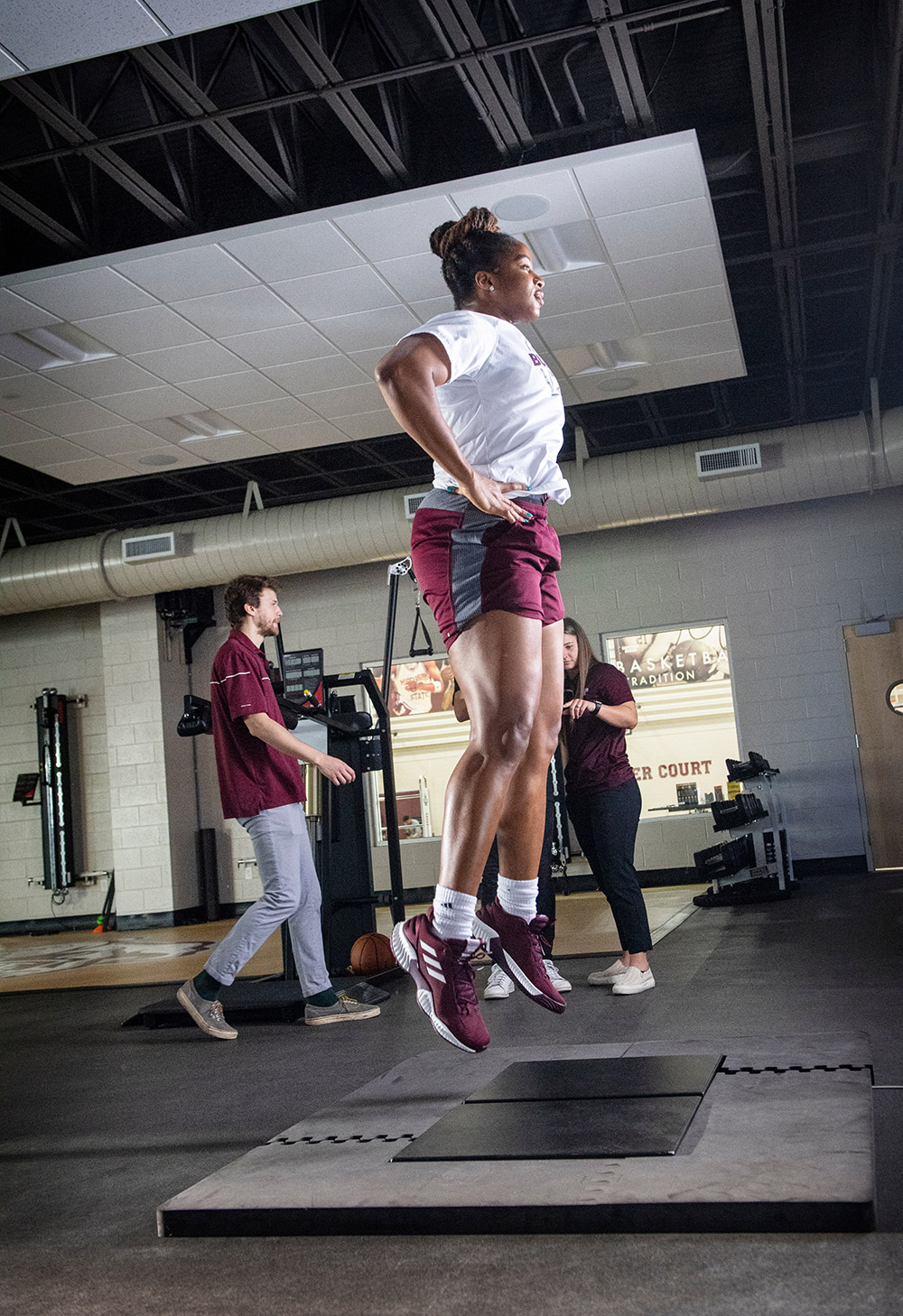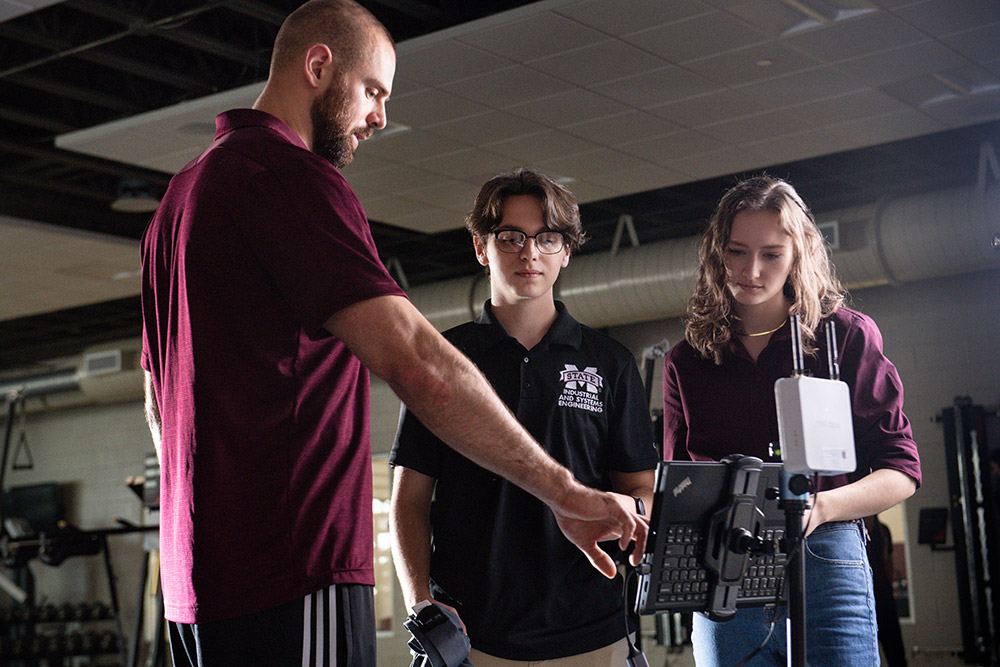
Mississippi State’s athlete engineering program is rapidly gaining ground in the science of wearable technology and human assessment — a growing field that holds exciting potential for improving athletic performance and mitigating injuries.



If you’ve used a watch to count the number of steps you’ve taken, then you know the convenience of “wearable tech” — a concept at the core of Mississippi State University’s athlete engineering program. By tapping into the university’s vast research expertise, athlete engineers are powering advancements in wearable technologies that compare current performance to historical metrics.
The portability of wearable tech and associated equipment makes it possible for student researchers to capture data directly from athletes on a field or court. By analyzing specific movements such as landing from a jump, pitching a softball, or swinging a golf club, they can help athletes improve body mechanics and reduce injuries.
To enhance their research insights and product development efforts, MSU researchers conducted interviews with more than 125 strength and conditioning coaches and athletic trainers representing collegiate and professional teams around the country to identify performance gaps in wearable technologies.
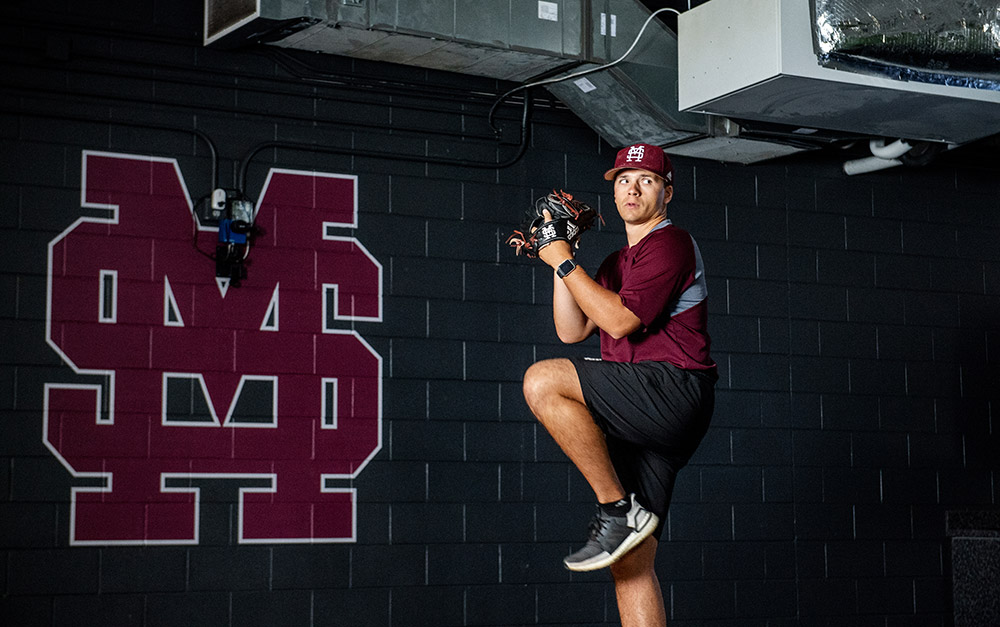
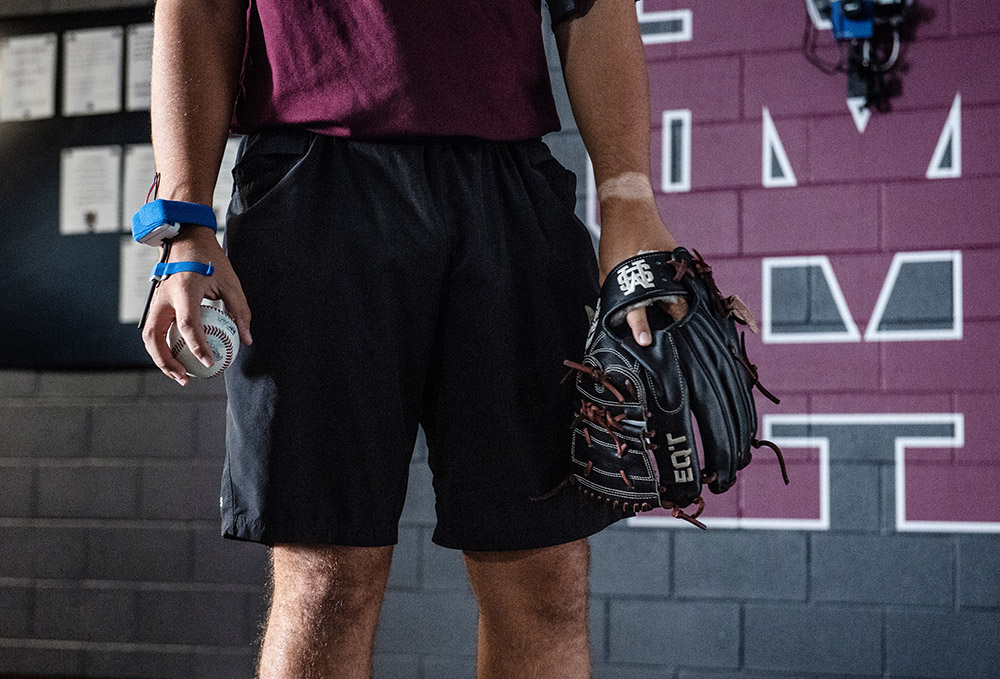
One of the most critical issues is data management. Regardless of how well a wearable device works, it’s not helpful unless it provides meaningful, actionable insights in a timely manner. Considering that a single football practice can generate millions of data points, athlete engineers rely on innovative software programs to automate, analyze and report performance data gathered from wearable devices.
That’s where the expertise of MSU’s National Strategic Planning and Analysis Research Center comes into play. NSPARC’s strengths in areas such as data analytics, predictive analytics and machine learning have been pivotal advantages in the program’s ability to integrate software and hardware development.
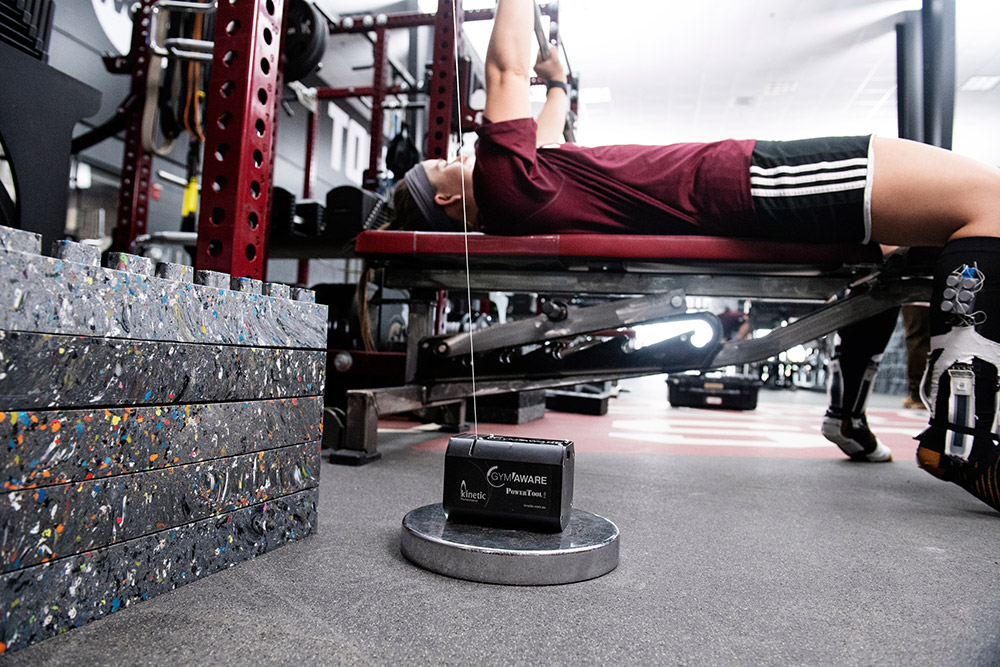
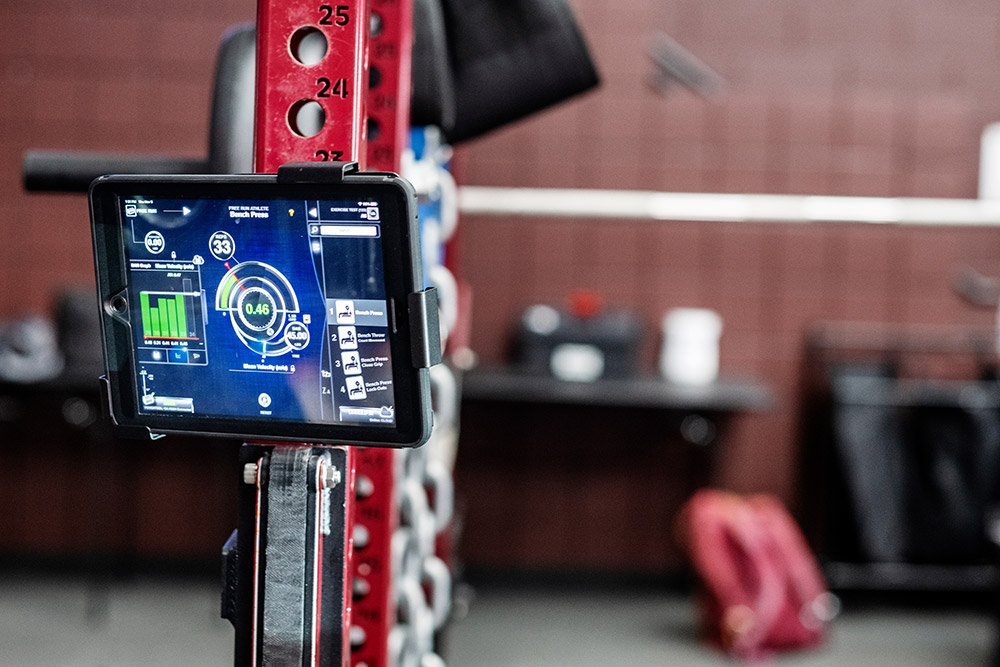
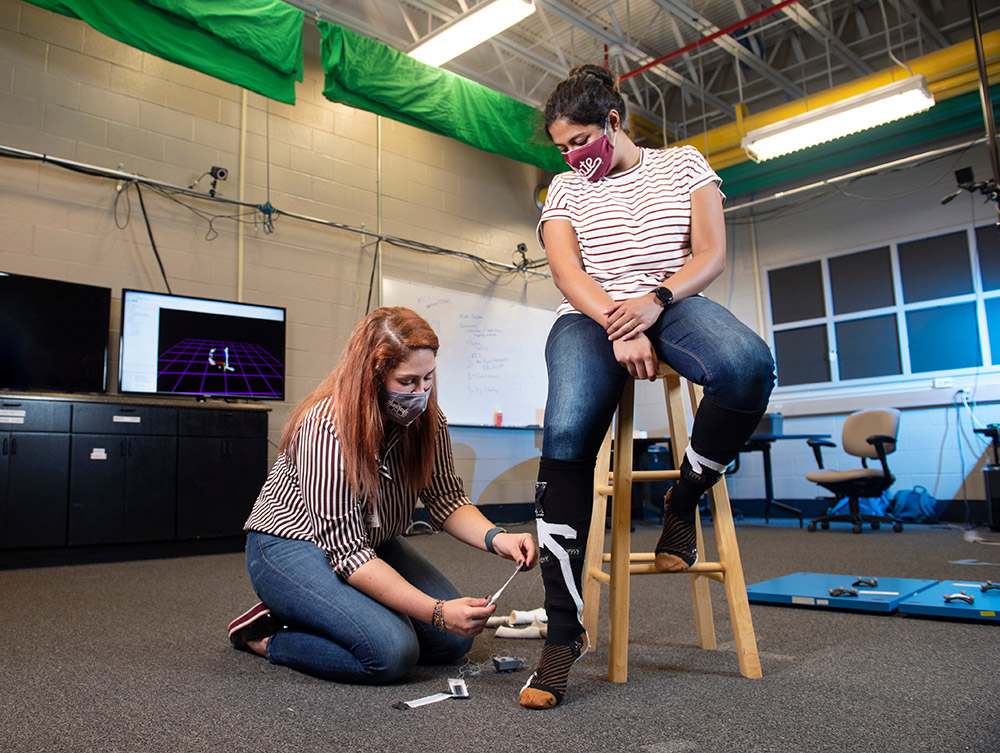
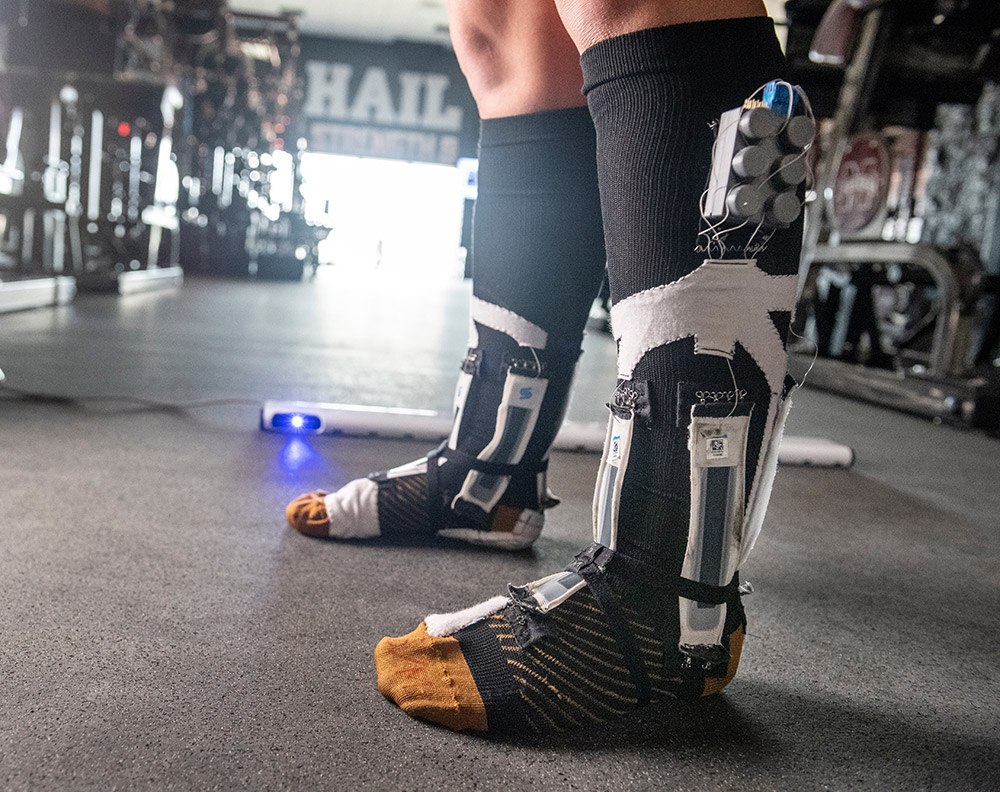
NSPARC also plays a key role in creating an athlete engineering student pipeline, thanks to the wealth of hands-on opportunities at MSU to use new technologies and work with real athletes generating real data. The program draws students who are interested in industrial engineering, health and safety engineering, sports and data analytics, and related fields.
“Students who learn about our athlete engineering program realize they can gain practical, real-world experience at Mississippi State,” says Burch. “And because so many professional sports teams are aware of what we’re doing, our students are great candidates for internships with NFL, NBA and MLB teams, which could lead to full-time jobs after they graduate.”
In addition to NSPARC, athlete engineers work with MSU’s Center for Advanced Vehicular Systems, where Burch is an associate director, in a diverse range of disciplines that include mechanical, biomedical, electrical and computer engineering, textiles, kinesiology and sociology, among others.
Their success in designing and building wearable devices is establishing MSU’s athlete engineering researchers as the go-to experts for a growing number of sports teams and wearable companies seeking feedback on their products. Using their state-of-the-art human performance lab, athlete engineers can validate the accuracy of wearable devices and other technologies by testing them with the coaching staff and student-athletes.
They’re also eyeing applications beyond sports. Wearable tech can mitigate injuries and improve performance for industrial workers, military personnel, emergency response personnel and others in physically challenging roles all while helping people during their rehabilitation after surgeries and injuries.
Burch and Luczak have more in common than their research interests — they also hold multiple degrees from MSU and are former athletes. A native of Alabama, Burch was a fullback for MSU’s football team from 1997 to 2001. Meanwhile, Luczak, a former Michigan NJCAA golf champion, came to MSU to play golf, but his collegiate career was cut short by a back injury.
Their active sports careers have given them personal insights into the toll that repetitive motion, impacts and injuries can take on the human body. By bringing together engineers, researchers and sports experts with experience and successes and allowing them to be hands-on with elite competitors, Mississippi State has the power to improve health and safety for new generations of student-athletes.
